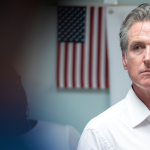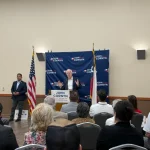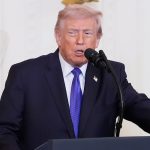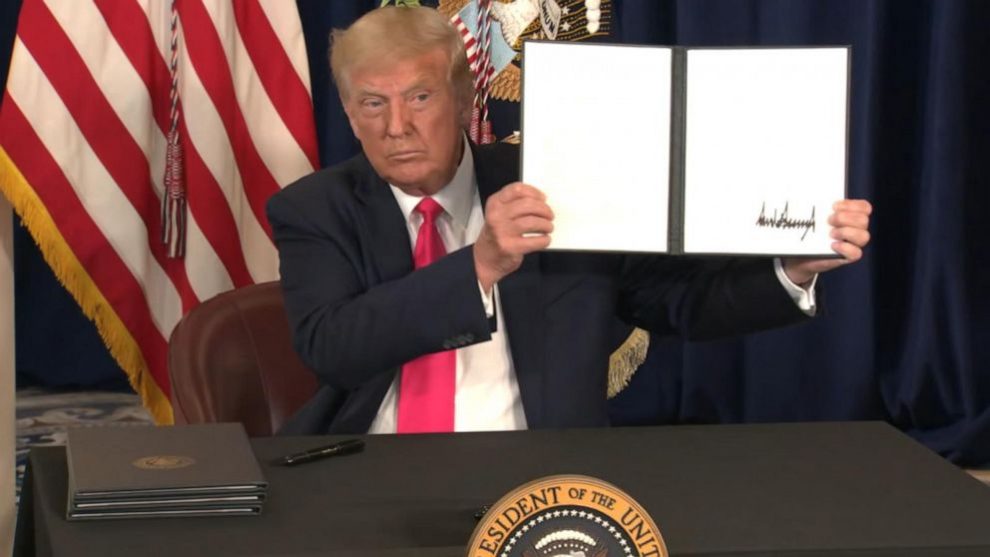President Donald Trump signed four orders aimed at providing coronavirus relief through executive action on Saturday as Congress is currently gridlocked on the issue.
Trump’s first order seeks to establish a payroll tax cut holiday from August 1, 2020 through the end of the year. The second directs the Department of Housing and Urban Development and other federal agencies to prohibit evictions. The third order establishes a $400-per-week addition to the paycheck protection program for workers. The fourth will provide relief for Americans’ student loans.
“It will be rapidly distributed,” Trump said.
Pres says he's ordering a payroll tax holiday for those making less than $100K/year. Would be in effect from August 1 to the end of 2020. Says if he's re-elected he'll extend the holiday and terminate the tax.
— Mark Knoller (@markknoller) August 8, 2020
Trump made the announcement one day after announcing other executive orders mandating that health insurers provide coverage for preexisting conditions.
Coverage for preexisting conditions is a major part of the Affordable Care Act, which the Trump administration is currently asking the Supreme Court to invalidate. Trump has long vowed that, though he seeks to remove Obamacare, he would ensure the replacement also provided coverage for preexisting conditions.
“Over the next two weeks I’ll be pursuing a major executive order requiring health insurance companies to cover all preexisting conditions for all customers,” Trump said Friday evening. “This has never been done before, but it’s time the people of our country are properly represented and properly taken care of.”
Trump’s announced six other campaign promises on Thursday in Ohio. He said he would keep manufacturing jobs in the U.S. and bring more back from overseas. He was also heavily critical of China, saying he would make consequences for companies that do business there. (EXCLUSIVE REPORT: The Inside Story Of How The Trump Team Is Rebuilding Our Supply Chain Preparedness)
Trump has been heavily critical of China since entering office in 2017, but has ramped up his rhetoric after the coronavirus spread from China across the globe. He has taken to calling COVID-19 the “China virus” and has suggested the U.S. is investigating ways to hold China accountable for its role in allowing the virus to become a global pandemic.
Story cited here.
























